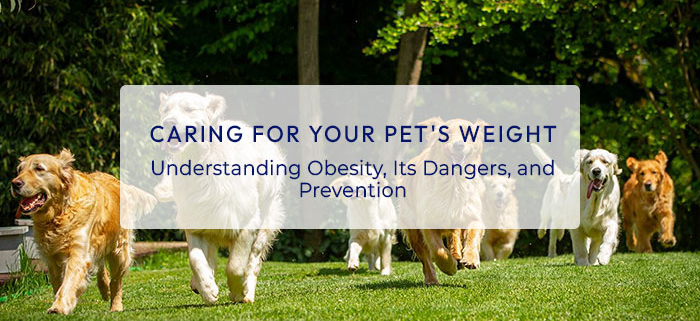Caring for Your Pet’s Weight: Understanding Obesity, Its Dangers, and Prevention
Our furry companions bring us endless joy and love, and as responsible pet owners, it’s our duty to ensure their health and well-being. One aspect of pet care that often goes overlooked is maintaining a healthy weight for our pets. Pet obesity is a growing concern that can lead to various health issues. In this article, we will delve into the topic of pet obesity, its associated risks, and most importantly, how to prevent it.
Understanding Pet Obesity
Pet obesity is a condition where a pet has an excessive amount of body fat, which can have adverse effects on their overall health. This condition is more common than you might think. According to the Association for Pet Obesity Prevention, an estimated 60% of cats and 56% of dogs in the United States are overweight or obese. This alarming statistic highlights the need for awareness and proactive measures to combat this issue.
Risks Associated with Pet Obesity
Obesity in pets can lead to a wide range of health problems, just as it does in humans. Some of the most common risks associated with pet obesity include:
Diabetes:
Overweight pets are at a higher risk of developing diabetes, which can be a lifelong and costly condition to manage.
Arthritis and Joint Issues:
Excess weight puts added stress on a pet’s joints, leading to arthritis and decreased mobility.
Respiratory Problems:
Overweight pets may struggle with breathing and have a reduced ability to exercise.
Shortened Lifespan:
Obesity can significantly reduce a pet’s lifespan, depriving them of precious years with their loving owners.
Preventing Pet Obesity
The good news is that pet obesity is preventable through proper diet, exercise, and regular veterinary care. Here are some essential tips for preventing pet obesity:
Balanced Diet:
Consult with your veterinarian to determine the appropriate type and amount of food for your pet’s age, breed, and activity level. Avoid feeding them excessive treats or table scraps.
Portion Control:
Measure your pet’s food portions to ensure they are getting the right amount. Be mindful of feeding guidelines on pet food labels.
Regular Exercise:
Keep your pet active with daily walks, playtime, and exercise routines. Cats should have opportunities for play and exercise indoors.
Scheduled Meals:
Stick to a consistent feeding schedule rather than free-feeding. This helps regulate their calorie intake.
Regular Vet Checkups:
Schedule regular checkups with your veterinarian to monitor your pet’s weight and overall health. They can offer guidance on managing your pet’s weight.
Conclusion
Pet obesity is a growing concern that can have serious health implications for our beloved furry friends. As responsible pet owners and members of the Family Pet Retreat community, it’s our responsibility to prevent and combat this issue through proper nutrition, exercise, and regular veterinary care. By taking proactive steps to maintain a healthy weight for your pet, you can ensure a longer, happier, and healthier life together. Remember that your veterinarian and the Family Pet Retreat team are essential partners in your pet’s weight management journey, so don’t hesitate to seek their guidance and support.





Leave a Reply
Want to join the discussion?Feel free to contribute!